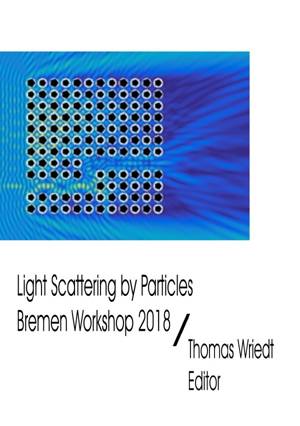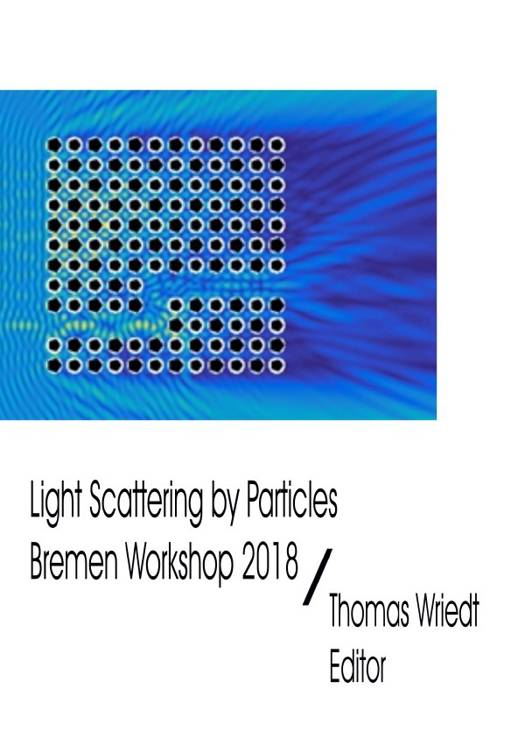
- Afhalen na 1 uur in een winkel met voorraad
- Gratis thuislevering in België vanaf € 30
- Ruim aanbod met 7 miljoen producten
- Afhalen na 1 uur in een winkel met voorraad
- Gratis thuislevering in België vanaf € 30
- Ruim aanbod met 7 miljoen producten
Zoeken
€ 12,95
+ 25 punten
Omschrijving
The papers collected in this volume explore the current state of light scattering by
particles as it developed in recent years. They represent a selection of the presentations
held during the Bremen Workshop on Light Scattering 2018, which the Leibniz-Institut
für Werkstofforientierte Technologien - IWT hosted and which was organized on the
University of Bremen Campus in Bremen in March 2018.
Over the years, this workshop became a regular institution with participants not only
from Germany but also from all over the word. Actually, this year there were again 28
participants from 12 different countries. During this year's workshop, various theoretical
and practical aspects of light scattering by particles very discussed. The papers collected
in this volume demonstrate the wide interdisciplinary nature of the interest in light scattering
by particles and particle aggregates.
Especially various practical aspects were extensively discussed ranging from THz Extinction
Spectroscopy, Characterizing particulate random media to SERS pH Nanoprobes.
The theoretical approaches used to simulate and investigate the mentioned practical
problems include the Discrete Dipole Approximation, Discrete Sources Method, T-Matrix
Method, and the Generalized Multipole method.
particles as it developed in recent years. They represent a selection of the presentations
held during the Bremen Workshop on Light Scattering 2018, which the Leibniz-Institut
für Werkstofforientierte Technologien - IWT hosted and which was organized on the
University of Bremen Campus in Bremen in March 2018.
Over the years, this workshop became a regular institution with participants not only
from Germany but also from all over the word. Actually, this year there were again 28
participants from 12 different countries. During this year's workshop, various theoretical
and practical aspects of light scattering by particles very discussed. The papers collected
in this volume demonstrate the wide interdisciplinary nature of the interest in light scattering
by particles and particle aggregates.
Especially various practical aspects were extensively discussed ranging from THz Extinction
Spectroscopy, Characterizing particulate random media to SERS pH Nanoprobes.
The theoretical approaches used to simulate and investigate the mentioned practical
problems include the Discrete Dipole Approximation, Discrete Sources Method, T-Matrix
Method, and the Generalized Multipole method.
Specificaties
Betrokkenen
- Auteur(s):
- Uitgeverij:
Inhoud
- Aantal bladzijden:
- 108
- Taal:
- Engels
Eigenschappen
- Productcode (EAN):
- 9783750249875
- Uitvoering:
- Paperback
- Afmetingen:
- 148 mm x 210 mm
- Gewicht:
- 149 g

Alleen bij Standaard Boekhandel
+ 25 punten op je klantenkaart van Standaard Boekhandel
Beoordelingen
We publiceren alleen reviews die voldoen aan de voorwaarden voor reviews. Bekijk onze voorwaarden voor reviews.








